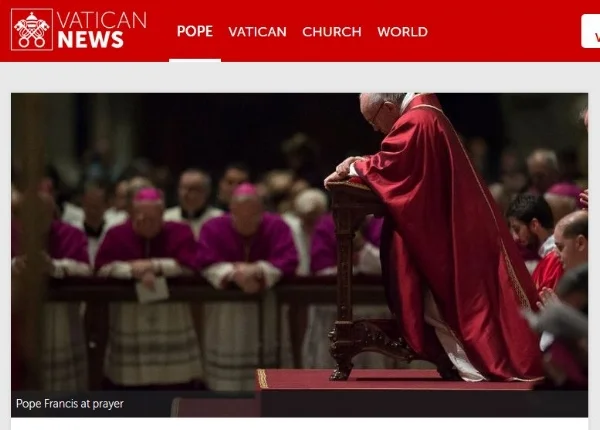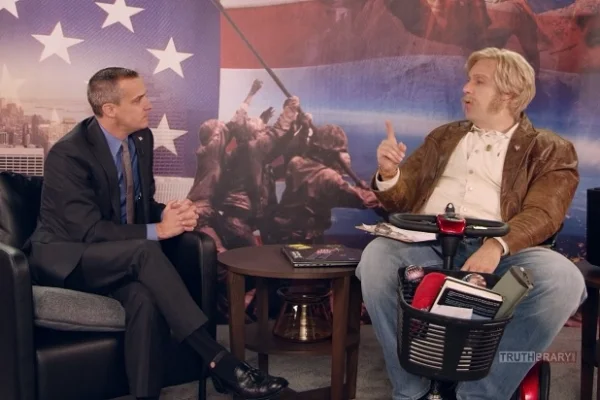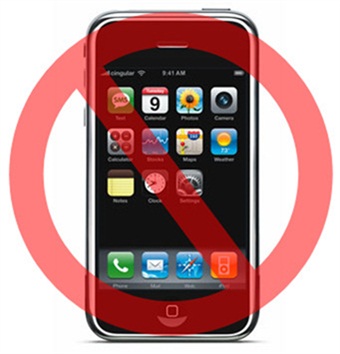School Policy for "Natural" Hair
An 11-year-old black girl was sent home from school because her hair didn't fit guidelines for "natural" hairstyles. Over the summer, Christ the King Parish School in Terrytown, Louisiana, established a new policy, published in its handbook, banning hair extensions, which Faith Fennidy was wearing.
Videos show Fennidy crying, and critics called the policy discriminatory. But the Archdiocese of New Orleans defended the school's decision:
"This policy was communicated to all parents during the summer and again before the first day of school, and was applied to all students.
"The school offered the student's family an opportunity to comply with the uniform and dress policy and the family chose to withdraw the student; the student was not suspended or expelled."
A representative for the school also said, "We remain committed to being a welcoming school community that celebrates our unity and diversity." Fennidy decided not to return to the school.
Discussion:
- What's your view of the policy? Do you find it appropriate, discriminatory, or something else?
- How do attire policies in companies compare? What examples of similar policies have been problematic for companies?
- Read more about the situation on BusinessInsider. How well did the school handle the situation? What, if anything, could have been done differently?
SodaStream Acquisition Communications
Pepsi will acquire SodaStream, which makes sense given declining sales of sugary drinks and bottled water, and increasing sales of sparkling water.
As we might expect, the press release focuses on Pepsi's "growing water portfolio" and its goal of "reducing the amount of waste generated." Incoming CEO and President Ramon Laguarta emphasized the strategic match between the two companies:
"SodaStream is highly complementary and incremental to our business, adding to our growing water portfolio, while catalyzing our ability to offer personalized in-home beverage solutions around the world. From breakthrough innovations like Drinkfinity to beverage dispensing technologies like Spire for foodservice and Aquafina water stations for workplaces and colleges, PepsiCo is finding new ways to reach consumers beyond the bottle, and today's announcement is fully in line with that strategy."
A Wall Street Journal article included a clear, simple column chart showing the dramatic increase in seltzer water.
Discussion:
- What is not said in the press release? What, if anything else, should be included?
- Pepsi's former CEO was Indra Nooyi, one of the few women running Fortune 500 companies, just announced her departure after 12 years. How, if at all, do you think the acquisition timing is relevant?
- What visual design principles are illustrated in the column chart?
Pope Francis's Letter
Pope Francis has joined the conversation about sexual abuse in the Catholic church after 1,000 victims and 300 perpetrators were identified by a grand jury investigation report in Pennsylvania. The report also revealed how the church systematically covered up the abuse over a 70-year period.
In an open letter, which is posted on Vatican News, expresses empathy early and often, for example, in this passage:
In recent days, a report was made public which detailed the experiences of at least a thousand survivors, victims of sexual abuse, the abuse of power and of conscience at the hands of priests over a period of approximately seventy years. Even though it can be said that most of these cases belong to the past, nonetheless as time goes on we have come to know the pain of many of the victims. We have realized that these wounds never disappear and that they require us forcefully to condemn these atrocities and join forces in uprooting this culture of death; these wounds never go away. The heart-wrenching pain of these victims, which cries out to heaven, was long ignored, kept quiet or silenced.
Pope Francis's letter follows one by Pope Benedict XVI in 2010, when abuse in Ireland became widely known.
Discussion:
- Compare the two letters. In what ways are they similar and different? How might the circumstance and timing affect each approach?
- How is the letter organized? How would you describe the tone?
- Which character dimensions does Pope Francis demonstrate in his letter?
The Debate Over Quarterly Reporting
President Trump is asking the SEC to no longer require report quarterly earnings. Instead, companies would report results every six months.
This may be good news for those who believe that publishing frequent earnings reports encourage a short-term focus. The idea is that investors make rash decisions based on the results from only three months.
One downside of the change could be less transparency. The value of quarterly reports is that investors are more aware of what's happening. In addition, the process itself may be useful internally, as a former investment banker explains:
"What I see from the inside of the quarterly earnings cycle is that there’s actually a lot of discipline in it. That process of having to prepare it, release it, explain it and answer questions has real value.”
Also, not everyone agrees that eliminating the report will foster longer-term thinking. As a compromise, some are proposing that reports are still published, but that specific earnings-per-share guidance information isn't included.
Discussion:
- Describe the importance of transparency in financial reporting. How does this relate to accountability?
- What's your view of the proposal to eliminate quarterly reports? Do you see additional benefits or downsides than what is mentioned here?
- In his tweet, President Trump refers to making "business (jobs) even better." How do you see this as a result of his proposal?
Maryland Apologizes for Football Player's Death
University of Maryland at College Park has taken responsibility for mistakes during training that caused a football player's death. During a news conference, President Wallace D. Loh said he met with the student's parents to apologize. After the investigation, Loh concluded:
"The University accepts legal and moral responsibility for the mistakes that our training-staff made on that fateful workout day." And to the parents, "You entrusted Jordan to our care, and he is never returning home again."
Such an admission is unusual and welcome in light of cover-ups and shifting blame.
As a result of this incident, the head coach was placed on leave and another coach, Rick Court, has left the university. Court had been accused of "name calling and other intimidation," according to a Chronicle report.
Some are calling for Loh's resignation as well. Trouble started with the athletics director around the same time. Loh has publicly expressed concerns about how these situations might affect his presidency:
“That’s the sad part,” he said. “I think most presidents have to hold on for dear life. Many, many presidents have not been able to bounce back.”
Discussion:
- In what ways does Loh make himself and the University vulnerable, and how might this work in their favor?
- Did Loh do the right thing? Should he resign?
- Assess Loh's news conference. What does he do well, and what could he improve?
- How well does Loh express compassion during the news conference?
Sacha Baron Cohen: Questions of Ethics and Integrity
Most famous for this Borat movies, Sacha Baron Cohen is at it again. He has a new Showtime series, "Who Is America?," and pranks mostly people with conservative political views. Impersonating something who might favor his target's position, he gets people to make embarrassing statements and do humiliating acts.
On a recent episode, Cohen convinced a gun-rights advocate to bite on a sex toy. (I didn't watch it.) Former vice presidential candidate Sarah Palin was duped recently and wrote a scathing Facebook post, calling Cohen “evil, exploitative and sick." For her interview, Cohen impersonated someone who appeared to Palin to be a disabled war veteran.
His strategy is to make people vulnerable: by impersonating someone who appears to be a person in need or a supporter, he lowers the interviewee's defenses so they are more easily humiliated.
Cohen's stunts remind me that companies send employees to impersonate customers to get competitive data. Or maybe this is a stretch?
Discussion:
- What's your view of Cohen's work: mean, exploitative, demeaning, clever, funny, or something else?
- Now consider his work using two frameworks: ethical decision making and integrity. How do his interviews measure up?
- What about my analogy to getting competitive data? What are the similarities and differences? Have you been asked by a company to use this tactic? Did you comply? Why or why not? It's a common practice.
Men More Likely to Be Called by Surname Only
Multiple studies show that men are more likely than women to be referred to by only their last name, while women are referred to by their full name. We are likely to say "Trump" yet "Theresa May." The studies include references to politicians, teaching faculty, and scientific researchers.
The differences are most striking in the computer science field, in which only 20% of women but almost 50% of men were referred to by last name only.
Trouble comes when, as some of this research confirms, people view those referred to by only their last names as "more famous and eminent, a judgment that could result in more awards, funding, and other career benefits."
This research reminds me of a recent New York Times article that explained how Wimbledon lists women on its board of champions. Before marriage, Chris Evert was listed as "Miss C.M. Evert." After marriage, she became "Mrs. J.M. Lloyd." Announcers refer to "Mrs. Williams," yet Roger Federer is simply "Federer" and listed on the board as "R. Federer," married or not.
Discussion:
- To what would you attribute the difference in how people are referred?
- Have you observed this difference yourself, perhaps in other settings? Consider working environments and Hollywood, for example.
- Do you find this research and the tennis calling significant? Why or why not?
Alaska Airlines Responds to Rogue Employee Takeoff
Without authorization, an employee manned an Alaska Airlines plane, operated by Horizon Air in Seattle, and took off. In audio files from the plane, the employee mentions his experience playing video games and wonders whether the airline will employ him if he lands well. Sadly, he didn't: the plane crashed.
On its website, Alaska Air posted a statement, "Information on Horizon Air Aircraft." Included is a quotation from Alaska Air CEO Brad Tilden including this paragraph:
“We are still gathering facts, but at this point we understand there was only one person aboard, an employee of Horizon Air, who was operating the aircraft. I want to share how incredibly sad all of us at Alaska are about this incident. Our heart is heavy for the family and friends of the person involved."
The Horizon Air CEO also included a statement, and COO Constance von Muehlen created a video.
Discussion:
- Why does Alaska Air title the web page, "Information on the Horizon Air Aircraft"?
- Review the message sequence on Alaska Air's site. How well is the company communicating information about the incident?
- How well do the three executives communicate the news? What, if anything, should they change? What is the value of von Muehlen's video compared to the written statements?
What Is "Dehumanizing" Speech?
The New York Times reports Twitter's struggle to define what constitutes "dehumanizing" speech. Apparently, the only agreement among Twitter's team members is that the decision is "incredibly complex."
Categorization is critical, as the company has a reputation as a sometimes dark place of trolls and harassment. Yet this week, Apple, Facebook, YouTube have expunged content from Alex Jones's Infowars, which is known for spreading misinformation, including that the shooting at Sandy Hook was a hoax. You can imagine how this angered families of lost children.
In a tweet, CEO Jack Dorsey explained Twitter's decision to keep Infowars content, but employees, particularly, have not responded positively.
Twitter is in a difficult spot because, on the other hand, sites have been criticized for censoring conservative views. Del Harvey, the company's VP of Trust and Safety, wrote an email to employees further explaining the company's rationale.
Discussion:
- How would you define "dehumanizing" speech? What character dimensions are involved?
- What persuasive strategies does Harvey use in her email to employees? Which are most and least convincing and why?
- What is your view about Infowars content? Should Twitter remove it from the site as other social media companies have done? How might your own political views factor into your thinking?
Banning Cell Phones
A Wall Street Journal article illustrates the futility of banning cell phones during meetings. Despite research that people aren't nearly as good as multitasking as they think, people can't seem to control themselves.
In a fit of frustration, Jason Brown, the chief executive of Brown, Parker & DeMarinis Advertising, told his staff, "Don’t show up at a meeting with me with your phone. If someone shows up with their phone, it’ll be their last meeting.” But laptops and watches started creeping back, and people were too worried about missing clients trying to get in touch.
New tracking tools are at least making people aware of how much time they're spending on devices. Moment, an iPhone app, and a new Google program for the Android will tell you how much time you spend on your phone every day. With this knowledge, one manager cut his time from four hours to one hour.
Update: The Wall Street Journal reports that France has banned cell phones in schools, kindergarten through ninth grade. The hope is to reduce distractions send a "symbolic message."
Discussion:
- How much time do you spend on your phone and other devices every day? Do you know?
- Do you view phone time as a problem for you? Why or why not?
- Part of the problem is our disconnection to other people. How have you seen this play out in a work or social environment?
Fun Funeral Ads?
Death is inevitable, and we don't like to talk about it. A UK company is trying to change that with "edgy" ads, for example, people running on a beach carrying coffins as surfboards.
The ads are causing a stir. Transport for London, which regulates the city's ads, rejected them as potentially causing “serious and widespread offense," although officials hadn't actually seen the ads. Still, on social media, people referred to the ads as "shocking,” “vile,” “insensitive,” and “tasteless.”
The ads compare burial and cremation prices, and one offers "one-way" travel with "roasting temperatures." The ad company founder defended the approach:
“Our reluctance to talk about death is the reason funeral costs continue to spiral and why you pay far too much for writing a will or settling an estate. That’s what we seek to change.”
Discussion:
- Why do we have a difficult time talking about death?
- How would you describe the ads and the agency's strategy?
- Could the ad strategy bring about a positive change? Will the ads bring in business?
- What if these ads ran in the U.S.? How, if at all, do you think the response might differ?
Open Offices Reduce Communication
Despite wishful thinking for better communication, new research shows that open offices may reduce productivity and decrease face-to-face conversations. Researchers at Harvard found that employees used online tools, such as instant messaging and email, more frequently and reduced their in-person discussions about 72% when open office floor plans were implemented. For the study, employees wore sociometric badges to track their interactions, including audio, motion, and distance.
What accounts for the change? The authors explain, "[R]ather than prompting increasingly vibrant face-to-face collaboration, open architecture appeared to trigger a natural human response to socially withdraw from officemates and interact instead over email and IM."
The study raises issues of certain types of cubicles, which negatively impact our need for privacy and cause distractions. Instead of open offices, the authors suggest communal lunch tables and simultaneous coffee breaks to increase socialization.
Discussion:
- What's your reaction to this study: obvious, interesting, or something else?
- What has been your experience with open office floor plans? How did the design affect your work and interactions?
- What other ideas do you have for increasing face-to-face communication at work?
CEO Activism
Weber Shandwick's third annual report explores CEO activism, which Brian Moynihan, CEO Bank of America, defines and supports:
“Our jobs as CEOs now include driving what we think is right. It’s not exactly political activism, but it is action on issues beyond business.”
The report found that almost half of Americans "believe CEO activism influences the decisions and actions of government," and almost half of consumers "would be more likely to buy from a company led by a CEO who speaks out on an issue they agree with." Millennials, particularly, prefer CEOs to speak out on issues, and CEOs with more social media accounts have better stock performance for their company.
A Wall Journal Street writer observes that leaders rarely make a business case for issues, even if their company would benefit. Instead, they are speaking to consumers directly to change hearts and minds.
Top issues for CEOs include training, equal pay and sexual harassment, and CEOs are avoiding gun control, nationalism, marijuana legalization, and abortion."
A Forbes article offers this advice for CEOs:
- Develop an authentic voice and quick actions
- Connect your customers with your activism efforts
- Align activism efforts with a company’s mission
- Be willing to act against your own self-interest
Discussion:
- What are the risks and rewards of activism to a CEO and to the company? How does integrity factor in?
- What examples have you seen of CEOs speaking out? How do you assess the situations? How did you feel about the gestures?
- Read the Weber PPT deck. What principles of business report writing are followed, and what could be improved?
More Research Support for Gratitude
New research, once again, illustrates the value of writing thank-you letters. A recent study shows that senders underestimate the impact of sending a letter of gratitude, which prevents them from writing one. People also worry that letters will be scrutinized and that receivers will feel awkward, but none of these perceptions align with the reality.
In their study, Amit Kumar and Nicholas Epley, at the University of Chicago, compared how "expressers" felt about writing a letter with how people felt receiving them. Receivers felt more surprised about receiving the letters and about the content, more positive, and less awkward than the senders thought they would be. Most expressers spent less than five minutes writing a letter.
Understandably, writers in the study doubted their own competence. Participants answered questions such as, “To what extent were you able to express your gratitude using words that were just right?” and “After your recipient reads your letter, how articulate do you believe they will think your expression of gratitude is?” People who received messages rated senders as more competent than senders rated themselves.
This study builds on Kumar's earlier work showing that reflecting on experiences rather than on material goods makes people feel better and act more generously toward others.
Discussion:
- Have you sent a letter of gratitude in the past couple of years? What inspired you to send it? How was it received?
- Have you thought about sending a letter but did not? What stopped you? Do the findings in this study encourage you now? The authors hope so!
When an Online Conversation Goes Bad
A new Cornell University study identifies a framework for determining when online discussions will turn ugly. By analyzing conversations between Wikipedia editors, the research team developed a computer model to predict, with 65% accuracy, when interactions would become "toxic."
People can identify these discussions with 72% accuracy. You can test whether you can identify which conversations will turn into personal attacks using an online tool.
The model analyzed politeness and other rhetorical strategies, for example, editors' use of "please," expressions of gratitude, and fact-checking. When editors used more direct questions and "you," conversations were more likely to go awry.
Discussion:
- How did you do on the online quiz? What did you learn from the experience?
- What is the value of this research? Consider social media sites such as Twitter. How could the model be used, and what are the potential positive and negative consequences?
Airline CEOs Defend Seat Size
American and Delta Airlines CEOs sit in small plane seats to explain the rationale and defend shrinking seat sizes. Doug Parker and Ed Bastian, both 6' 3" tall, agreed to talk to a WSJ writer, while United CEO Oscar Munoz declined.
Both CEOs say they fly coach for short trips. Bastian started a policy that Delta directors must fly coach when traveling less than three hours. Of course, as the article points out, suffering three hours in a small seat isn't quite the same as 24.
The executives say that flight amenities, such as WiFi, make up for any discomfort from smaller seats. American's Parker says that customers don't complain and that the airline hasn't "done anything that makes the main cabin product less desirable than it was before." The airlines are also focused on providing larger seats for higher fares.
Another WSJ article explains what airlines consider when making seats comfortable.
Discussion:
- How does this story illustrate character dimensions such as compassion, vulnerability, and humility?
- Did the CEOs do the right thing by agreeing to participate in the article? What are the risks and benefits?
- Why would United CEO Oscar Munoz decline? Was this the right decision for him and the airline?
- What persuasion tactics do the CEOs use to convince us that flying coach is not so bad?
- Do you agree with the CEOs' assessments about small seats? What has been your experience?
Professor Fakes Offer Letter
To negotiate for a higher salary, a Colorado State University faculty member invented an offer letter from another university. At first, Brian R. McNaughton was successful: he received an additional $5,000. But the university eventually found out the truth.
McNaughton resigned and now faces criminal charges for his actions. In a long letter, he cited personal pressure and other faculty submitting fake offers for increases in salary, but the university denies this history.
A Fast Company article offers advice for whether to use this approach to negotiate for more money. Of course, the article doesn't recommend faking another offer. Still, even presenting real offers is complicated and risky.
Discussion:
- What do you see as the possible complications and risks associated with presenting your current employer with another offer?
- Consider using another offer during the recruiting process. What should you consider before you use this tactic?
Papa John's Founder Resigns
Papa John's founder and chairman John Schnatter resigned after using the "N-word" on a conference call. This may have been the last straw for the executive, who sparked controversy about NFL players "taking a knee" during the national anthem. Schnatter blamed league players and leadership for declining viewership he linked to declining pizza sales. Muddying the issue, Schnatter won unwanted support from some neo-Nazis.
This incident involved Laundry Service, a marketing firm that was helping Schnatter navigate future PR crises. During a role play, Schnatter said, “Colonel Sanders called blacks n-----s." His point was that the KFC chairman didn't face any backlash. A Forbes article details more of the conversation:
"Schnatter also reflected on his early life in Indiana, where, he said, people used to drag African-Americans from trucks until they died. He apparently intended for the remarks to convey his antipathy to racism, but multiple individuals on the call found them to be offensive, a source familiar with the matter said. After learning about the incident, Laundry Service owner Casey Wasserman moved to terminate the company’s contract with Papa John’s."
In a statement, Schnatter apologized:
"News reports attributing the use of inappropriate and hurtful language to me during a media training session regarding race are true. Regardless of the context, I apologize. Simply stated, racism has no place in our society."
Discussion:
- A Netflix executive resigned after a similar situation. What differences do you see in these two situations, and do they matter in terms of the resulting resignations?
- Papa John's next challenge is how to distance itself from Schnatter, whose face is on the pizza boxes. Should the image be removed? Why or why not?
Women Run "As Themselves"
After years of female politicians running for office in the pantsuit uniform, we're seeing newcomers present themselves more authentically. Women on the campaign trail are wearing skinny jeans and sweaters and talk openly about their children, mental illness, and credit card debt. A New York Times article describes their approach as "vulnerability that campaign consultants have long told women to avoid."
A 29-year-old Democratic candidate for Congress says the race is "so dang personal to me," and "It's personal" is a tagline for her commercials. Other examples are showing tattoos, wearing natural hair styles, and discussing a divorce.
A 2017 study, "Modern Family: How Women Candidates Can Talk About Politics, Parenting, and Their Personal Lives," confirms the approach. Comparing tested images, the study authors conclude, "Images [should] work strike the right balance of authenticity, formality, and the interaction between the candidate and the child." According to the findings, the image on the left side "works" but the image on the right doesn't: "Images that don’t work fail because they look too staged, are too casual, and either center the child too much, or seem like the candidate is ignoring the child."
Discussion:
- How might this approach relate to our current political environment and the MeToo Movement?
- What are the potential downsides for women using this approach on the campaign trail?
- How does this story related to women leaders in business?
- Which business writing principles of report writing does the report follow? Analyze the report organization, content, and writing style.
Report Concludes that Amazon Is "Delivering Hate"
A scathing report accuses Amazon of spreading hate in the form of white supremacist and racist material. The report, published by Partnership for Working Families and the Action Center on Race and the Economy, cited books, clothing, jewelry, and other items for sale. Listings include Nazi memorabilia, references to lynching, and Confederate flags, for example, a baby's onesie with a burning cross and a noose decal.
The report authors argue that, although Amazon has policies in place to prevent the sale of "products that promote or glorify hatred, violence, racial, sexual or religious intolerance or promote organizations with such views," the company acts too slowly or not at all to remove such items.
Danielle Citron, a professor at the University of Maryland Carey School of Law, said that Amazon hasn't been criticized as much as Twitter and Facebook have been.
Discussion:
- The law professor acknowledged that Amazon wouldn't be held liable. What do you think is the company's responsibility?
- What's the danger of both too little and too much oversight of item listings?
- Analyze the report: audience, objectives, organization, writing style, and so on? Which business report writing principles are followed, and what could be improved?
































